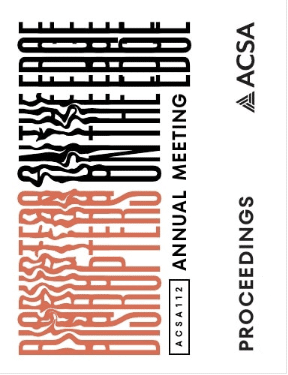Author(s): Claudia Hernandez-Feiks & Ting Chin
The impetus for this research derives from our aspiration to gain a deeper understanding of how we can effectively teach students to navigate the design process. Consequently, our endeavors have culminated in the creation of a catalog and taxonomy matrix that attempts to decipher and encode prevalent trajectories in architectural design studio pedagogy. This was achieved through the curation and systematic analysis of project briefs from over fifty design studios used in a wide range of architectural institutions throughout the United States over the past eight years. Each project brief was studied to determine the approach and methodology employed. Based on recurring themes, we categorized the briefs into distinct approaches and created a taxonomy matrix. The catalog serves two primary functions. Firstly, it aims to establish the context of design studio pedagogy by documenting the various approaches employed in studios. Secondly, it categorizes different tactics to examine how these methodologies prepare students to reach the higher tiers of Bloom’s taxonomy, particularly in terms of analyzing and evaluating complex design problem-solving. It is important to note that our research does not advocate for any specific design approach. Instead, it serves as a reference and resource for educators and students, providing insights into current pedagogical approaches while also encouraging critical reflection on our own ideologies. The focus of this paper is to refine and contextualize the catalog within the thematic lexicon and historical forces that influence architectural education. We use the book Architecture School: Three Centuries of Educating Architects in North America as the initial framework for our work but recognize that, as Joan Ockman states in the introduction, it reflects the time when it was written1. Therefore, we also reference more contemporary approaches in architectural studios that are constantly redefined and influenced by current global discourse. As evidenced in the book Radical Pedagogies, particularly during times of urgency, teaching practices are called on to revisit their approaches, experiment, and consider their future evolution.2
https://doi.org/10.35483/ACSA.AM.112.62
Volume Editors
Germane Barnes & Blair Satterfield
ISBN
978-1-944214-45-6

 Study Architecture
Study Architecture  ProPEL
ProPEL 
